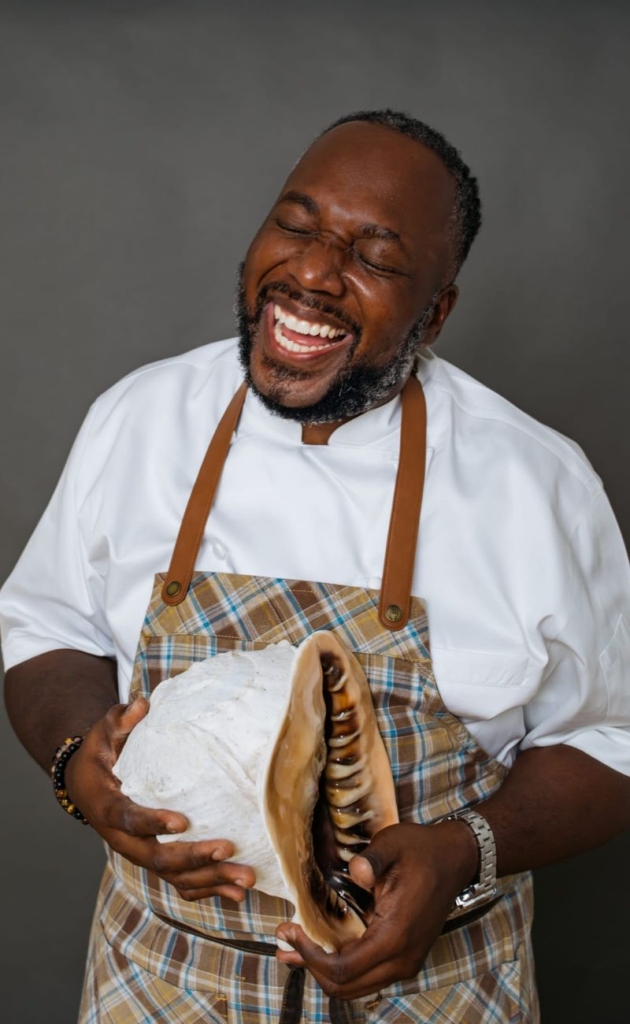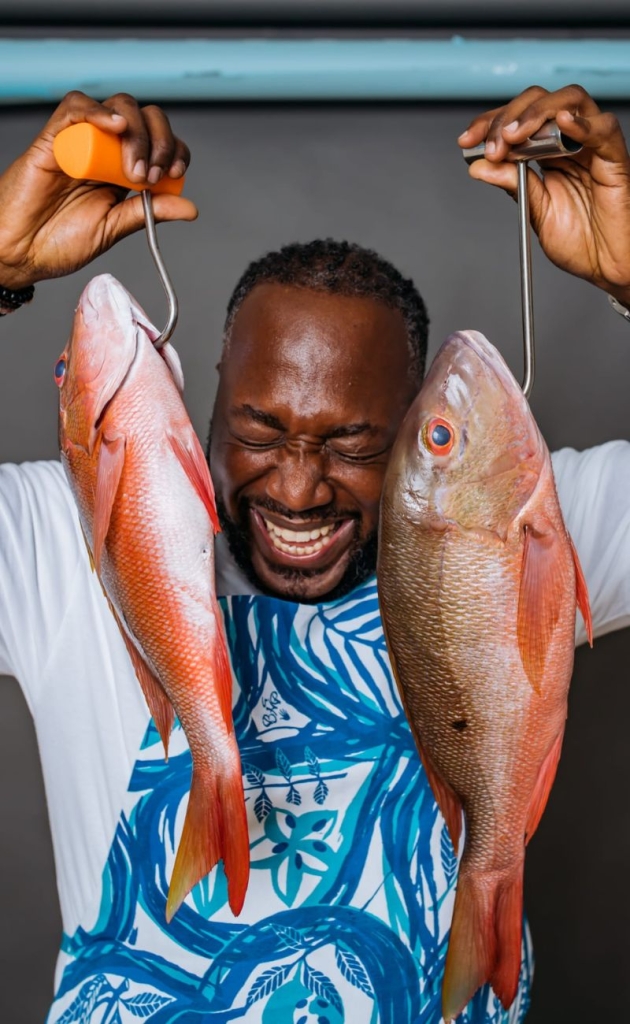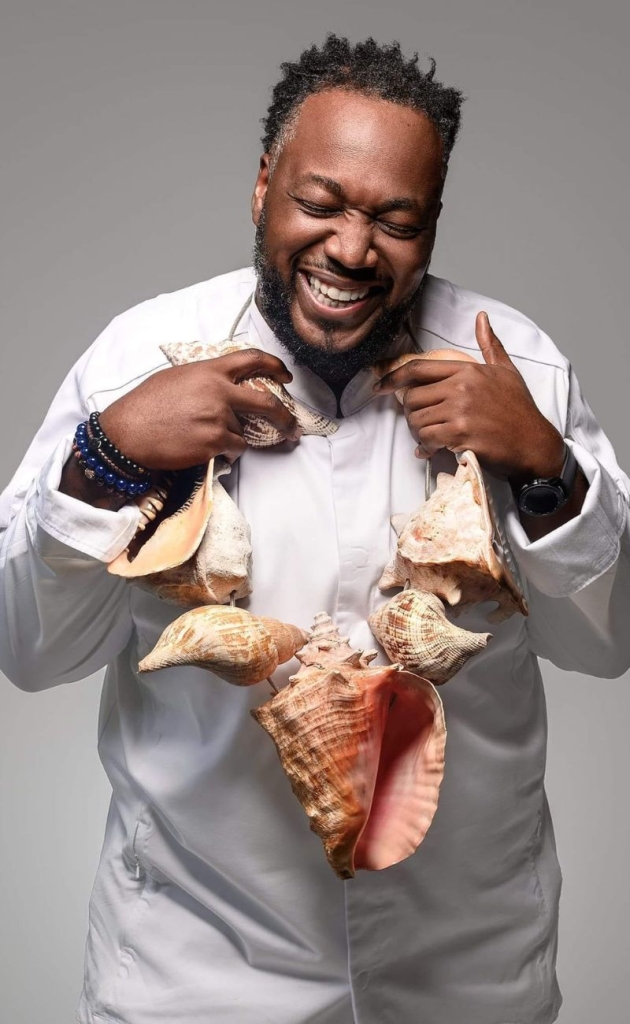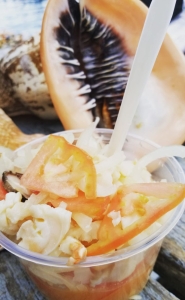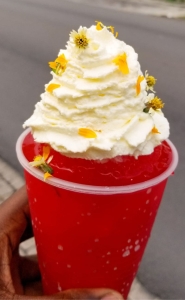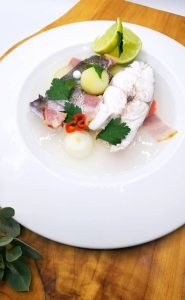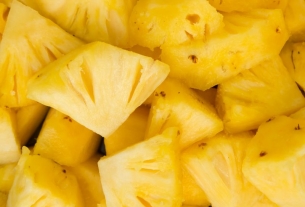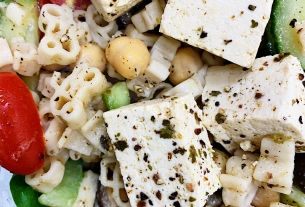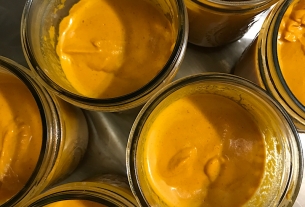By: Gabbi Sawyer
Millions of tourists come from far and wide to visit the Bahamas. They come mainly to partake of the perennial sunshine, the pristine sand, the majestic sea and the hospitable natives.
Another aspect of the culture that is on the rise, is real Bahamian cuisine. Bahamian dishes are as diverse as each of the 700 islands and cays that span our archipelago. But these dishes and their heritage do not receive as many accolades as they deserve. Thankfully, there are a few individuals that are pushing the envelope to ensure that this history is not forgotten.
Chef Simeon Hall Jr. is a critically acclaimed Bahamian celebrity chef, popularly known for his love for country–especially as it concerns culinary. He curates innovative dishes that highlight local ingredients and he educates about the history of Bahamian food. He often shines a spotlight on local businesses and fellow industry professionals–all in an effort to pay homage to as many aspects of the culture as possible.
Chef Hall, who has dubbed 2023 his year of “Dope Connections and Deliciousness”, is off to a busy start. He recently wrapped up a successful Farm & Sea-To-Table event with Out in the Field on Paradise Island, and is now promoting his “Walentimes” specials (Valentine’s). Keep up with his latest ventures via his website and social media.
Chef Hall had humble beginnings in the culinary field from the age of seven. He began to earn a paycheck by assisting his grandmother Nola, (curator of the famous Nola’s baked crabs) by running errands and shopping for her at the farmer’s market.
Nola was the first black female to own a restaurant in the region, the first cook at Doctor’s Hospital and when she saw a void in the market, she was the first to sell mini meals. Needless to say, her love for food and her entrepreneurial nature were passed on to her grandson.
In an interview with Chef Hall, I had the opportunity to be informed about various aspects of our cuisine, as we discussed the culinary culture of the Bahamas. The conversation spanned his induction into the culinary field, dishes commonly prepared in the Out Islands and advice to up-and-coming industry professionals.
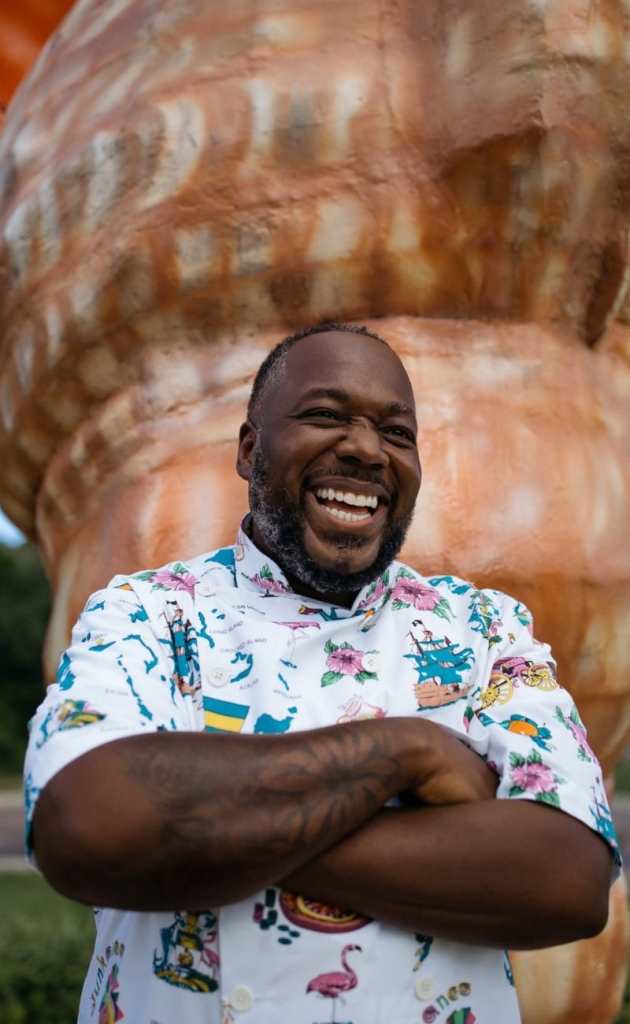
Q: What is the driving force behind your enthusiasm of pushing the Bahamian culinary culture, both locally and internationally?
A: “For the simple fact that it was not being done. When I entered the culinary industry professionally, I did not see anyone pushing Bahamian food, and that was a void in the market that I wanted to fill.
I started to conduct research and explore the history of our cuisine. I spoke to many from past and present generations, even travelling to various Bahamian islands, the Carolinas and other related places to ask questions.
I cringe at the fact that I am one the few people that celebrate the Bahamian food culture, everyone should be enthusiasts.”
Q: Why do you think our cuisine is not celebrated more, what hinders its popularity?
A: “Tourism can be both a blessing and a curse. Unfortunately, the downside of tourism is that our food has had to conform to cater to the palates of visitors. And as a result, the cuisine has been watered down, and so has the culture. These watered-down dishes then become the norm, not only for visitors, but also in Bahamian homes. Bahamians have always failed to celebrate and support their own culture, which is totally opposite to other Caribbean nations that proudly celebrate and support their cultures.
It also stems from a lack of education, which starts from within the home. It is not being passed down throughout the generations. Many do not even know the national dishes of the Bahamas. We must understand our own culture and know the foundation of it before we make alterations.
Native dishes and their origins are also not strongly implemented in the curriculum of high schools, nor in higher education where culinary training is administered.”
Q: Do you think your efforts are making an impact? What improvements have you seen so far?
A: “The movement is slowly changing and getting stronger. I have been working in the field for almost 28 years, but in the last 15 years I have really focused on telling the Bahamian story. I can definitely say that it is different.
Last year, for the first time ever, a Bahamian chef was the headliner at a major food festival at Baha Mar resort, which was myself.
There have also been numerous people that volunteer information to me, inquiring about the origins of certain dishes, traditions or once popular restaurants, which sparks even more research. It is never-ending.”
Q: I’m going to say two words, I want your reaction to them, “canned guava”.
A: “NEVER! It is an abomination. We should never make our national dessert with ingredients from a can.
There is a local company based in Andros, Bee in the Bahamas, that has 30 acres of guava trees and 10 tons of processed Bahamian guavas ready for sale. There is no excuse for watering down our own culture.
Guava duff specifically is not even the national dessert, duff is. Duff should be filled with whatever is in season at the time and boiled in a pillowcase. People have become accustomed to doing it wrong, and that is where the problem lies.”
Q: What is a trend amongst local cuisine that you enjoy seeing?
A: “I am not sure if I agree or disagree with trends just because of their fickle nature. But I will say that the cuisine of the Bahamas is influenced by plural cultures. A lot of the “trends” we see, are just an amalgamation of the many islands and nationalities that have always existed, but are just now coming to the forefront.
Each island represents a different style of our food. They create a different interpretation of a dish. In West End (Grand Bahama) there is pickled conch, in Bimini there is garlic salt conch, in Abaco there is mayonnaise in conch salad. In Inagua, there is coconut milk in boiled fish and on some islands donkeys and seagull eggs are consumed.
There is a huge gap in the understanding of food in this country, even I am just beginning to scratch the surface. We need to be curious about more than just the latest trend, but be curious about our rich Bahamian culture.”
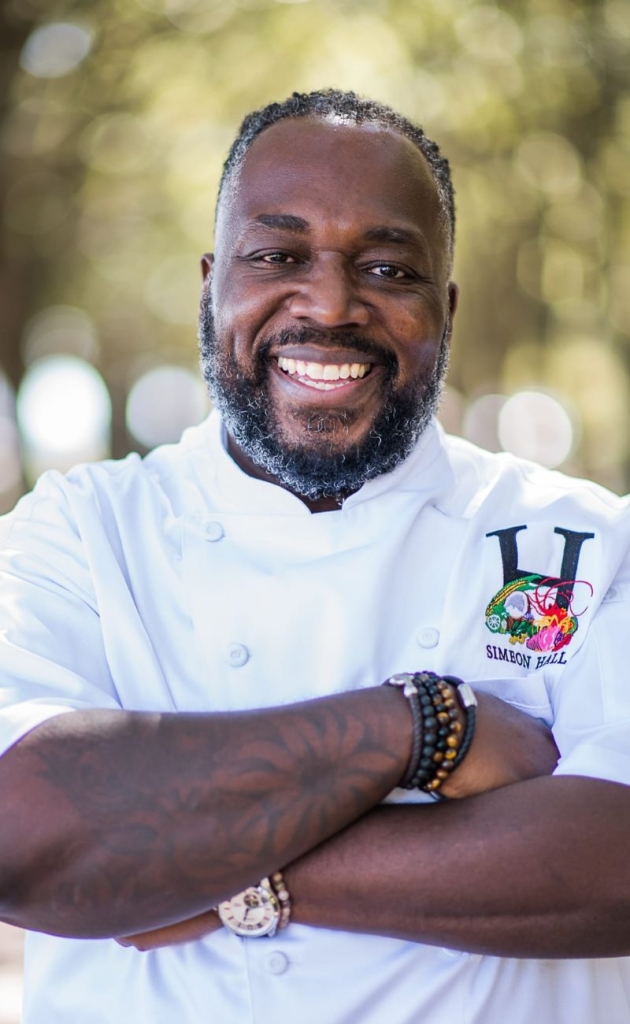
Q: As someone that has been in the industry for a number of years, one of my key reasons for leaving was the working conditions, which seems to be an international standard (hostile environments, extremely long hours, low pay). What are your thoughts on the nature of the industry? Do you think it will ever change?
A: “It is definitely going to change; people are beginning to wake up. Noma is a Michelin star restaurant by chef Rene Redzepi, and it was recently announced that it is closing its doors. The reason given for its closure is that it is an unsustainable model in regards to working conditions.
I too am working on a business model for a restaurant that changes this dynamic. It will be a model that fosters an environment conducive to creativity, learning and growing. It will be a positive environment where cooks desire to come to work to exercise creativity, where they will be praised more than they are punished, that eliminates excessive hours and vastly differing salaries between front of house staff and back of house staff.”
Q: You have had a career filled with note-worthy accolades from both local and international sources, what is your proudest accomplishment thus far?
A: “Being featured as the headliner for the Bahamas Culture & Arts Festival Baha Mar in 2022 is my proudest accomplishment so far. Along with continually being requested to represent the Bahamas at local and international events.
I am proud of everything that I have done that takes the message of our culture outside of the shores of the Bahamas. I am especially proud when I attend international events and people recognize Bahamian story telling through food…this is how we know we are reaching the masses.”
Q: What is a piece of advice you have for those up and coming in the industry?
A: “Slow down. We live in a world of highlights, where everyone only wants to show the best of their work and everyone wants to be at the top. You cannot pursue excellence without encountering failure first. Take it all in. Do not appoint the title ‘chef’ too early. Be humble and focus on learning and gaining experience and even taking advice from others more seasoned in the industry. Enjoy the journey of understanding through successes and challenges.”
“We must serve not only authentic Bahamian foods, but delicious foods that we can be proud of. It starts with knowing the history. Celebrate our native culture and dishes and promote them to preserve the culture, because who else will?” – Chef Simeon Hall Jr.

